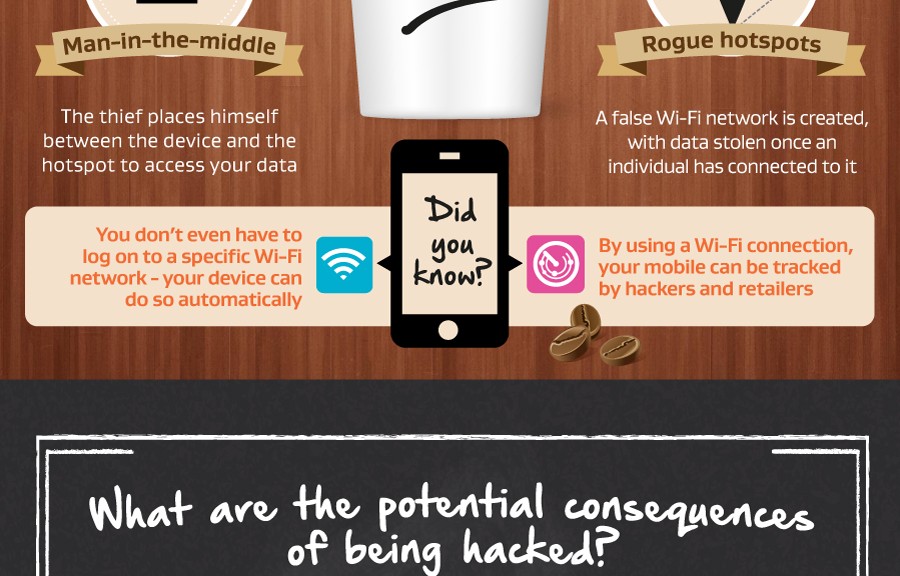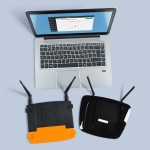What it’s all about
The weaknesses that allow the so called LogJam Attack apparently have to do with how Diffie-Hellman key exchange has been deployed. Said key is a popular cryptographic algorithm that allows internet protocols to agree on a shared key and negotiate a secure connection. Since it is fundamental to many protocols like HTTPS, SSH, IPsec and SMTPS it is relatively wide spread: about 8.4% of the top one million websites and an even bigger part of servers using IPv4 are affected by LogJam.
“Millions of HTTPS, SSH, and VPN servers all use the same prime numbers for Diffie-Hellman key exchange. Practitioners believed this was safe as long as new key exchange messages were generated for every connection. However, the first step in the number field sieve—the most efficient algorithm for breaking a Diffie-Hellman connection—is dependent only on this prime. After this first step, an attacker can quickly break individual connections”, the team state.
According to the researchers LogJam can be used to downgrade connections to 80% of TLS DHE EXPORT servers. They also estimates that a skilled team can break a 768-bit prime and that – due to the available resources – a state-sponsored campaign could break the common 1024-bit prime.
This is especially scary since they estimate that a successful 1024-bit prime attack would allow for eavesdropping on up to 18% of the top one million HTTPS domains.
Their research paper goes even further: “Our calculations suggest that it is plausibly within NSA’s resources to have performed number field sieve precomputations for at least a small number of 1024-bit Diffie-Hellman groups. This would allow them to break any key exchanges made with those groups in close to real time. If true, this would answer one of the major cryptographic questions raised by the Edward Snowden leaks: How is NSA defeating the encryption for widely used VPN protocols?” How about that! It definitely opens up room for a lot of discussions.
As with FREAK, the vulnerability is actually quite old already. “To comply with 1990s-era U.S. export restrictions on cryptography, SSL 3.0 and TLS 1.0 supported reduced-strength DHE_EXPORT ciphersuites that were restricted to primes no longer than 512 bits”, the released paper reads.
What you can do
Luckily the team has already been in touch with most of the browser developers which means that there are either already fixes available (namely for the Internet Explorer) or will be very very soon.
Make sure you have the most recent version of your web browser installed: Google Chrome (including Android Browser), Mozilla Firefox, Microsoft Internet Explorer, and Apple Safari are all deploying fixes for the Logjam attack. If you run a web or mail server you should disable support for export cipher suites and generate a unique 2048-bit Diffie-Hellman group.
More information on LogJam can be found on the dedicated page.
The post LogJam Vulnerability Threatens Thousands of HTTPS Websites & Mail Servers appeared first on Avira Blog.



 Speaking of Wi-Fi – Just like in real estate, one of the most important things for your router is location, location, location.
Speaking of Wi-Fi – Just like in real estate, one of the most important things for your router is location, location, location.  I run because I really REALLY like Beer!
I run because I really REALLY like Beer! World Backup Day
World Backup Day The family IT expert knows how frustrating it can be to help someone solve a computer problem over the phone. Avast makes it easier with our Remote Assistance service. Now you can
The family IT expert knows how frustrating it can be to help someone solve a computer problem over the phone. Avast makes it easier with our Remote Assistance service. Now you can  With all the security improvements in browsers and operating systems, some people have questioned whether they still need antivirus protection. The business of malware has changed, but it can still be devastating if you are targeted. COO ONdrek Vlcek explains why Avast is
With all the security improvements in browsers and operating systems, some people have questioned whether they still need antivirus protection. The business of malware has changed, but it can still be devastating if you are targeted. COO ONdrek Vlcek explains why Avast is 
